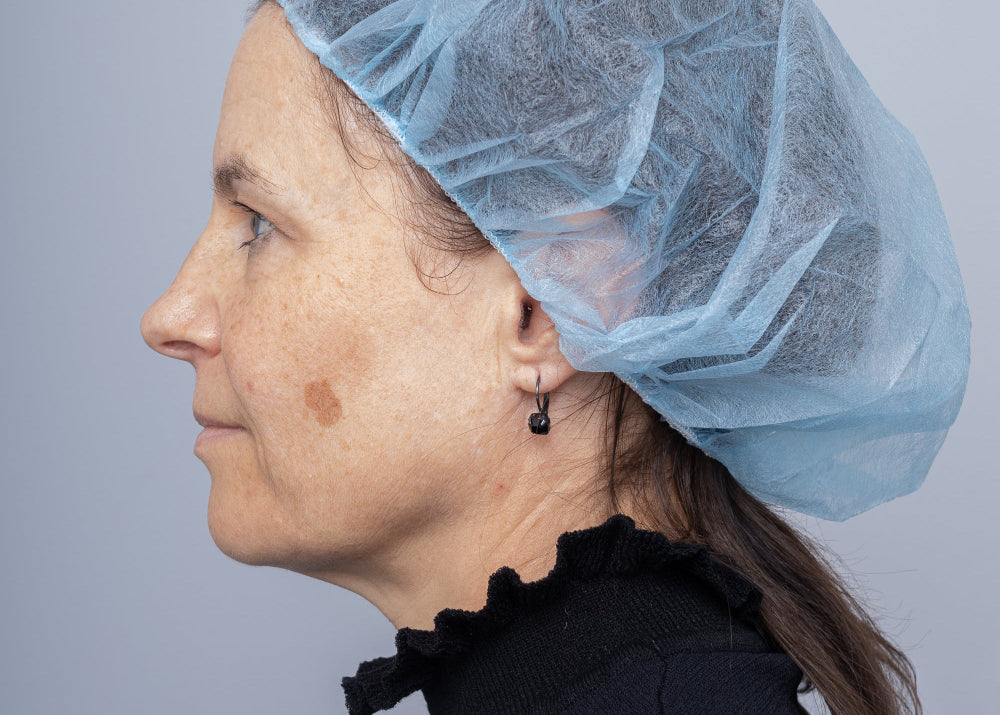What is Pigmentation?
Pigmentation refers to the colouring of the skin, primarily determined by melanin. When melanin production becomes irregular, it can lead to various pigmentation issues including:
- Sunspots (Age Spots): Darkened areas resulting from prolonged sun exposure.
- Melasma: Symmetrical brown patches, often triggered by hormonal changes.
- Freckles: Small, light brown spots commonly found on fair skin.
- Post-Inflammatory Hyperpigmentation: Dark spots left after acne or skin injuries heal.
Causes:
- Sun Exposure: UV rays stimulate melanin production, leading to dark spots.
- Hormonal Changes: Pregnancy or contraceptive use can trigger melasma.
- Inflammation: Healing from acne or injuries can result in dark spots.
- Genetics: Family history can influence susceptibility to pigmentation issues.
These pigmentation concerns can affect one's appearance and confidence, making effective treatment essential.
 How do we treat it?
How do we treat it?
At Lasers In Medicine, we offer a comprehensive approach to treating pigmentation issues:
Laser Therapy: PICO Enlighten III
The PICO Enlighten III laser is a state-of-the-art device that utilises picosecond technology to target and break down pigment in the skin. Its versatility allows for the treatment of various pigmentation concerns, including sunspots, melasma and freckles.
- How it works: The laser delivers ultra-short pulses of energy to the skin, breaking down pigment particles, which are then naturally eliminated by the body.
- Key concerns it treats: Sunspots, melasma, freckles and post-inflammatory hyperpigmentation.
- Benefits: Minimal downtime, safe for all skin types and effective results.
Topical Prescriptions or Products
Topical treatments can complement laser therapy by addressing pigmentation at the surface level.
- Role in treatment: To lighten dark spots and prevent new pigmentation from forming.
- Common ingredients: Hydroquinone, retinoids and vitamin C.
In-Clinic Treatments
Additional in-clinic treatments can enhance the results of laser therapy.
- Microneedling: Stimulates collagen production and improves skin texture.
- LED Therapy: Reduces inflammation and supports skin healing.

How do we support results long term?
Achieving and maintaining clear, even-toned skin requires ongoing care and lifestyle adjustments:
- Sun Protection: Daily use of a broad-spectrum SPF is crucial to prevent further pigmentation.
- Skincare Regimen: Incorporate products that support skin health and pigmentation control.
- Follow-Up Treatments: Periodic sessions can maintain and enhance results.
- Advanced Technology: Utilizing the latest in laser technology ensures optimal outcomes.
To complement your pigmentation treatment, consider the following products available at Lasers In Medicine:




